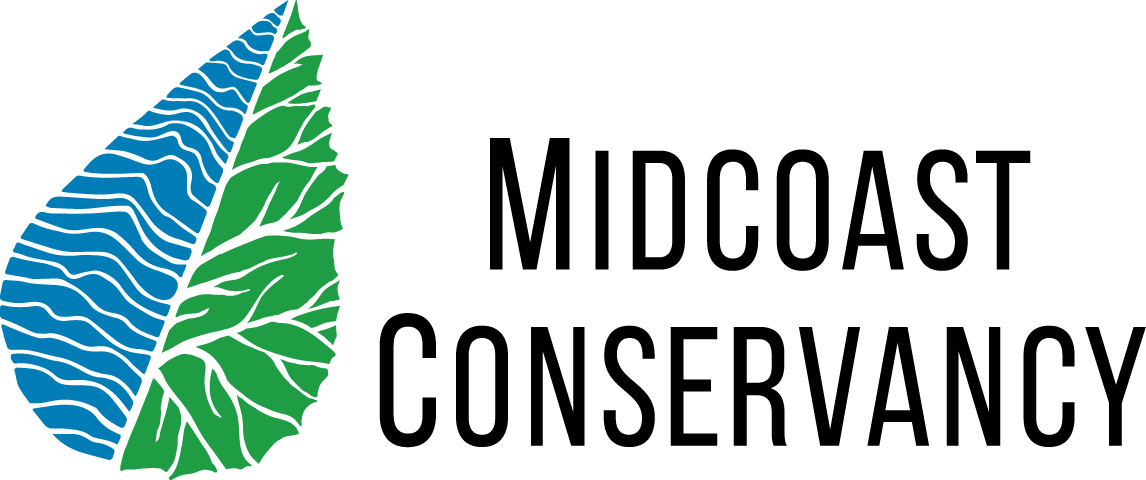Oar Island Cleanup in Partnership with Maine Island Trail Association
The coves along the inland sides of Muscongus Bay islands are perfect collection spots for wayward lobster traps. Their nooks and crannies invite unauthorized lodging for all manner of detritus, including rope, crumbling buoys and hundreds of mangled traps. Removing the traps is an arduous, multi-step process that requires plenty of resources and specific permission from the Maine Marine Patrol due to the fact that it is otherwise illegal to move lobster gear even when it has washed up on shore.
Wednesday, June 29th, volunteers from the Maine Island Trail Association (MITA) and Midcoast Conservancy’s Medomak Council joined forces to remove nearly 200 traps from Oar Island. Long-time Volunteer Monitor skippers Ben Fuller and Tom Carr, along with MITA Regional Stewardship Manager Maria Jenness, piloted three skiffs to the congested coves and offloaded a dozen volunteers and Oar Island co-owner Anne Wesson. Armed with serrated knives, work gloves and high spirits, the team spread out to strip the traps of rope, seaweed and anything else caught inside before loading the emptied traps onto the skiffs.
Monitor skipper Fuller says, “The most difficult and satisfying job in monitor skippering is running a skiff stacked so high with traps and other gear that you need to stand on the seat to be able to see over it as you run pretty slowly. On this occasion we got to do it a number of times. And I'd been looking at the accumulation of fishing gear on the Oar Island shore for thirty some years and finally have the privilege to do something about it.” Once offloaded on the mainland, volunteers drove the traps to a facility in Washington, where they will be recycled.
MITA recently launched their “Flat Traps Fund” campaign (mita.org/flattrapsfund) to raise money for a mobile compacting device that would be able to crush derelict traps into a more manageable size and allow MITA's boats to carry many more traps per trip. “This cleanup day certainly demonstrated the need for the compactor, and how much more efficiently we could remove the traps if compacted. I hope we can use it to finish the job off later in the season!” said Jenness.
Four hours and many skiff-loads later, 5,800 pounds of trap refuse had been removed; more remains but the results of the day were clear and satisfying. Medomak Council Chair Bennett Collins says, “It’s very gratifying to see the outcome when partner organizations come together to share resources, skills, and knowledge to improve our unique environment here in Midcoast Maine!” Wesson, the island’s co-owner says, “Thank you so much for organizing the Oar Island clean-ups. What a huge effort that is! The shoreline looks so much better without all those derelict traps in the way. I am grateful to MITA and Midcoast Conservancy. Without their help, those traps would have continued to mar the island as trash, for I could not have removed them without their help. The beauty of the Maine islands in their natural, wild state is something we all treasure and hope to preserve.” Sentiments like that are why work day partnerships like this one are an important way to steward the special places of coastal Maine.



